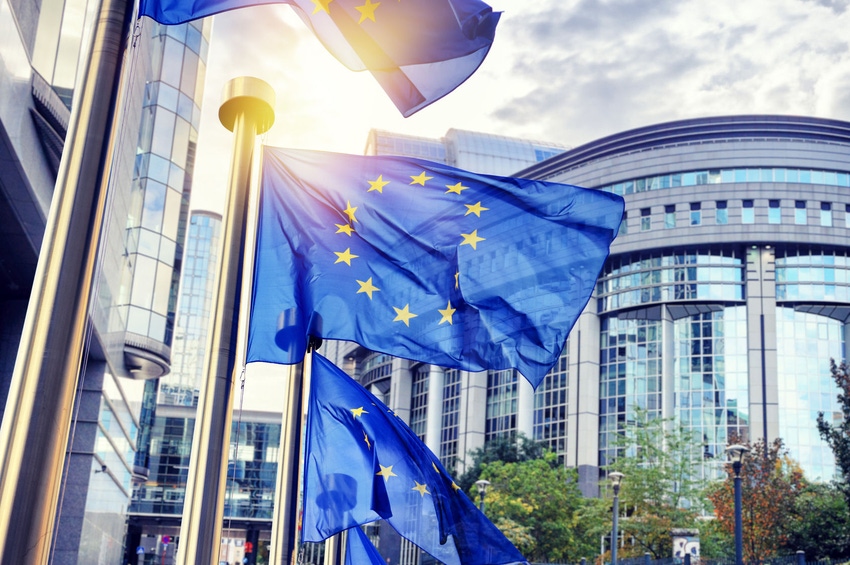The European Union’s Digital Services Act claims to ensure ‘a safe and accountable online environment’.
April 25, 2022

The European Union’s Digital Services Act claims to ensure ‘a safe and accountable online environment’.
In that respect it seems to be the same sort of thing as the UK Online Safety Bill, in so much as it uses the veil of safety to increase the amount of power governments have over online speech. The EU has been more subtle about it, which isn’t saying much, and has sugared the pill with some measures that do seem genuinely useful. But make no mistake, this is no less of an move to exert greater control over the public square.
“With the DSA we help create a safe and accountable online environment,” said EVP for a Europe Fit for the Digital Age, Margrethe Vestager. “Platforms should be transparent about their content moderation decisions, prevent dangerous disinformation from going viral and avoid unsafe products being offered on marketplaces.”
“Today’s agreement on the Digital Services Act is historic, both in terms of speed and of substance,” said European Commission President Ursula von der Leyen.” The DSA will upgrade the ground-rules for all online services in the EU. It will ensure that the online environment remains a safe space, safeguarding freedom of expression and opportunities for digital businesses. It gives practical effect to the principle that what is illegal offline, should be illegal online.”
That last bit feels like a straw man – surely what is illegal offline was already illegal online. Vestager’s emphasis on ‘disinformation’ is the giveaway, as that’s an arbitrary designation not necessarily related to national laws. In other words, anything the EU designates as disinformation must be censored. The self-congratulation about speed for a piece of legislation what was first proposed in 2020 is hilarious.
Intriguingly, none of the censorious stuff is mentioned in the summary of what the DSA contains:
Measures to counter illegal goods, services or content online, such as:
a mechanism for users to easily flag such content and for platforms to cooperate with so-called ‘trusted flaggers’;
new obligations on traceability of business users in online market places;
New measures to empower users and civil society, including:
the possibility to challenge platforms’ content moderation decisions and seek redress, either via an out-of-court dispute mechanism or judicial redress;
provision of access to vetted researchers to the key data of the largest platforms and provision of access to NGOs as regards access to public data, to provide more insight into how online risks evolve;
transparency measures for online platforms on a variety of issues, including on the algorithms used for recommending content or products to users;
Measures to assess and mitigate risks, such as:
obligations for very large platforms and very large online search engines to take risk-based action to prevent the misuse of their systems and undergo independent audits of their risk management systems;
Mechanisms to adapt swiftly and efficiently in reaction to crises affecting public security or public health;
New safeguards for the protection of minors and limits on the use of sensitive personal data for targeted advertising.
Enhanced supervision and enforcement by the Commission when it comes to very large online platforms. The supervisory and enforcement framework also confirms important role for the independent Digital Services Coordinators and Board for Digital Services.
It seems the platforms themselves were, unsurprisingly, most concerned about obligations around greater transparency and targeted advertising and lobbied frantically behind the scenes while publicly supporting the DSA. It’s hard to deny that US tech giants have far too much unaccountable power over our digital lives and if any organisation can wrestle some of that away from them it’s the EU. Whether that will improve matters for the consumer, however, remains to be seen.
The DSA is just one front of the EU vs big tech war, another being the Digital Markets Act. Just as in the UK, US and elsewhere, regulators and law-makers are rightly trying to rein-in the exceptional powers claimed by big tech while they were asleep on the job. Our fear is that the likely outcome of this process will be a public/private partnership designed to give us less control than ever over our digital lives in the name of safety.
Get the latest news straight to your inbox. Register for the Telecoms.com newsletter here.
About the Author(s)
You May Also Like








.png?width=300&auto=webp&quality=80&disable=upscale)


_1.jpg?width=300&auto=webp&quality=80&disable=upscale)


.png?width=800&auto=webp&quality=80&disable=upscale)